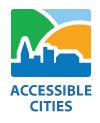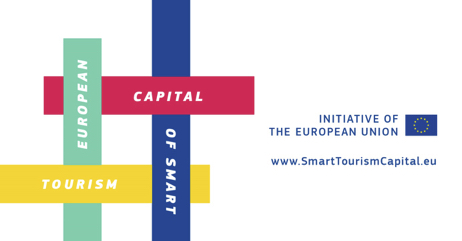Accessible Cities
 Introduction
Introduction
European Cities have a major role to play in delivering good access both to their own citizens with disabilities and to tourists of all ages and abilities.
Many European Cities are working to build their reputations as accessible, liveable cities - vibrant destinations that offer a warm welcome to all visitors.
Here, at the Accessible Cities Home Page, ENAT publishes the profiles of those cities that wish to showcase their achievements and good practices. These are cities that are setting new benchmarks in their continual efforts to improve accessibility.
 The Smart Tourism Capitals of Europe award is a European Commission initiative that recognises best practices in Accessibility, Sustainability, Digitisation and Cultual Heritage and creativity. The award has been given to leading cities in Europe since 2018 and a Compendium of Best Practices has been compiled from the cities' submissions in 2019 and 2020.
The Smart Tourism Capitals of Europe award is a European Commission initiative that recognises best practices in Accessibility, Sustainability, Digitisation and Cultual Heritage and creativity. The award has been given to leading cities in Europe since 2018 and a Compendium of Best Practices has been compiled from the cities' submissions in 2019 and 2020.
![]() European Access City Award. The European Award for Accessible Cities was launched in May 2010 by the European Commission and has run on an annual basis since then.
European Access City Award. The European Award for Accessible Cities was launched in May 2010 by the European Commission and has run on an annual basis since then.
Follow the links below to learn about cities that promote accessibility and inclusion for their citizens and tourists.
Project Items
Results 13 to 21 out of 21.
